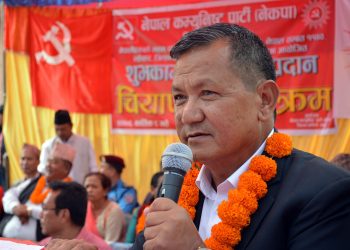KATHMANDU: Former Chief Justice Kalyan Kumar Shrestha underscored the crucial distinction between the right to privacy and the freedom of publication, especially in the context of reporting on victims of sexual violence.
He emphasized the necessity to respect privacy, emphasizing it as a matter of personal autonomy and dignity during an interaction program organized by the Women, Law, and Development Forum.
Speaking on the sensitive issue of gathering news about victims of sexual violence, Justice Shrestha urged media professionals to exercise caution, particularly regarding women’s privacy, which he regarded as especially delicate.
“Publicizing the name of an accused before proven guilty is unwarranted. It’s essential to note that reporting on the accused should not prejudge guilt or innocence. We cannot claim a democratic society until accountability increases. In a democracy, respecting everyone’s rights and holding everyone accountable is paramount,” he emphasized.
Highlighting the economic repercussions of gender-based violence, which accounts for a substantial loss in global GDP, Justice Shrestha urged collective efforts to combat it. He lamented that despite the prevalence of violence, only a fraction of victims have access to justice, forcing many to live with the stigma of victimhood. He stressed the importance of concerted efforts to enhance access to justice for all.
During the session, journalist Babita Basnet presented on ‘Coverage of Sexual Violence in Mass Media: Balancing Victim’s Privacy.’
She acknowledged that while mainstream media has become more responsible in reporting on sexual violence victims compared to three decades ago, challenges persist due to the impact of social media and YouTubers.
Basnet cited differences in practices between countries, noting that in the UK, the identity of the accused in sexual violence cases remains undisclosed until proven guilty, unlike in Nepal, where the accused might face lifelong consequences even before a verdict.
Basnet also acknowledged recent government initiatives, such as the ‘Guidelines for Regulating Social Media, 2080,’ but lamented their limited dissemination. Despite existing laws on the right to privacy, she highlighted the plight of victims due to inadequate implementation.
The discussion shed light on the complex interplay between media responsibility, privacy rights, and the challenges of navigating the digital landscape concerning reporting on sensitive issues like sexual violence.









Comment